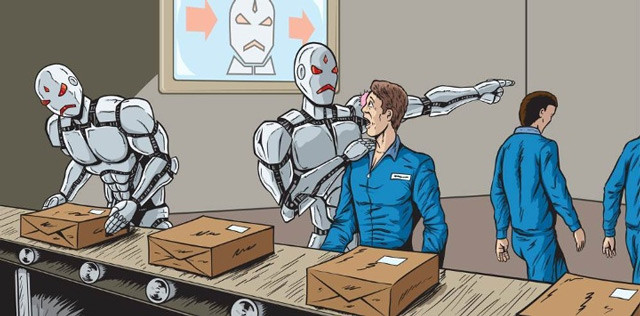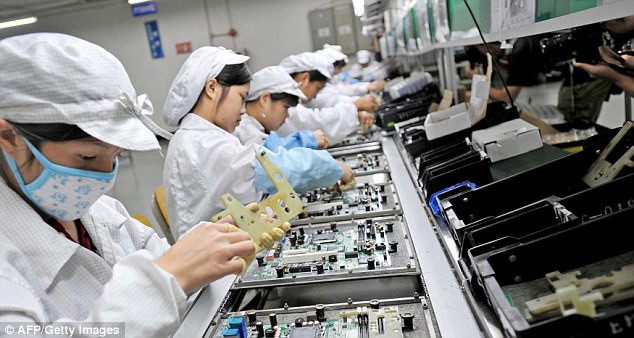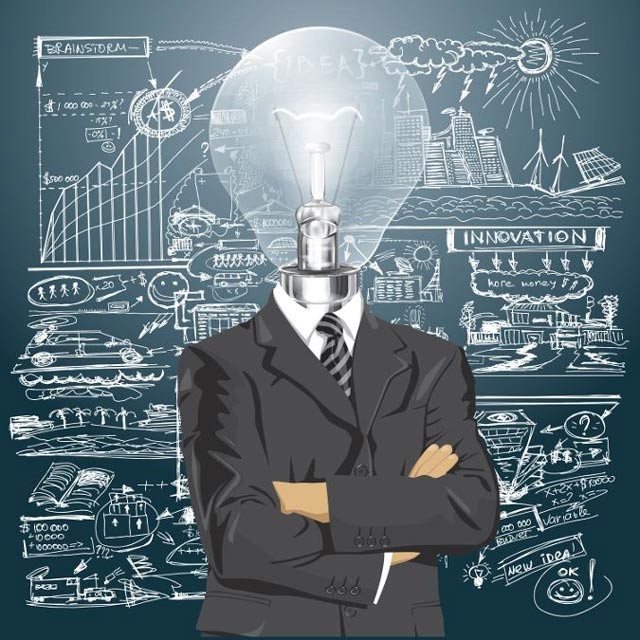How does Al revolution help us answer the most fundamental problems of philosophy? (Part 3)
Who I am? I was born to do? In this part 3, the answers to these two questions will be revealed by the world's leading technology expert Kaifu-Lee by looking back on the added values that artificial intelligence has contributed to businesses, industry.
Summary of part 2: the explosion of the third wave of artificial intelligence thanks to hardware advancements and a reassessment of the possibility of the scenario of AI dominating humanity
- How does Al revolution help us answer the most fundamental problems of philosophy? (Part 1)
- How does Al revolution help us answer the most fundamental problems of philosophy? (Part 2)
PART 3: AI adds value but also brings many challenges.

These added values and challenges from AI
I am currently working in venture capital. We work with startups. We see the results have improved a lot just by applying proven good algorithms to real world problems. Currently we are at a stage where every tree for fruit is blooming. Having countless easy goals helps us maximize our opportunities by creating value through each goal. But our value creation does not need new scientific advances. Scientists should pause (new scientific advances) and create better algorithms to learn more deeply, and we, in the space to start a product, should maximize value. The value of AI is extremely large because it will eventually replace all of our routine work and make them better than people to create so much value for society.
There are many studies that have talked about AI as today 's technology without new inventions. AI is applied to finance, hospitals, government, education, and all kinds of fields to create value. Look at McKinsey, Goldman Sachs, PWC. We will be able to do many things to make history more than we are doing. Basically, algorithms that operate only on electricity will outperform humans in all these things. Whether you consider it as an increase in the value chain or a replacement of the work of human habits, the amount of value is great. As forecast, in the next 10-15 years, the companies will be worth 15, 20, 30 trillion USD. This hypothesis creates interesting areas to invest and do business.
Suppose we build a smart legal support system with AI, this system can be better than journalists in short articles. Or we build a loan-replacement program, a production line, a receptionist . Oh, so what happens to those who are doing those jobs? In an abstract world, if we reconstruct the world from ash, we will be very happy human beings because we use machines to solve routine and repetitive tasks. there. And then we can elevate ourselves to thinking, innovation, creativity, social interaction, entertainment, and other things we like. It will be a life full of surprises. We will all face a challenging 15-20 year ahead, when half of the work is replaced by machines. Job destruction will take place on the scale that people have never witnessed.

Industrial revolution took place longer. The industrial revolution created more jobs while replacing jobs. While manufacturing cars and autonomous vehicles takes a few months of experts, a production line allows that to happen at a lower rate of time by dividing the work into small parts. Some work has disappeared. Some will be created. Car prices go down. And the salary for recruitment will increase.
Artificial intelligence is different because when we create a specialized lender that decides whether to give someone a loan or not purely based on quantitative information, the lender will be 99% better than existing lenders. Existing personnel will be replaced immediately because it is a simple optimization issue - enter all the data you know about the customer, and the output will be the ability of the customer to re-pay. compared to the default ability.
99% rate is a quantitative operation based on a huge amount of data that no human can match. Those who do those jobs will be removed and have to do something else. The same thing will happen in the areas of security, legal assistance, accounting, including reporters and translators.
Now, we are witnessing AI translators as well as amateur translators. They have not yet reached the professional level but good enough to help you when traveling. Probably, in the end, we don't have to learn a foreign language because we only have a small ear to understand what others say. This wonderful addition will help us be more convenient, productive, create value, save time, but at the same time we also realize that translators will be fired.
We are here to be creative
When thinking about the industrial revolution, we find that it has done many good things by creating many jobs. However, it is a painful process and there are some suspicious tricks. We're about to see all these problems happen again and even worse in the AI revolution. During the industrial revolution, many people were displaced and displaced, and then lived in poverty. In general, there is still more wealth and recruitment, but only for a few people.
Luckily, the industrial revolution has been going on for a long time, so that there is a gradual shift so that governments work in turn with the groups being fired. In the industrial revolution, certain work ethics have been ruined: Capitalists want the worst part of the world to believe, if they work hard, even if it is a repetitive job. accustomed, they will be paid, they will have a certain wealth, and that gives them dignity and self-awareness. As humans, it is certainly not the way we want to be remembered.
At the same time, that's how most people on earth believe in their existence today. And now this extremely dangerous thing happens again, because the AI is about to take most of the routine and repeat work. It is not just a matter of some people losing their jobs and not being paid. There is a possibility that what needs to be considered is UBI (universal business intelligence) or some kind of income plan. The problem is that people who lose their jobs have felt that the reason for their existence is work ethics, hard work, buying a house, and providing for their families.
The work is repetitive, to the extent that you like photography or calligraphy, you can redo it many times and believe that every work is a little different - you enjoy it, you're mature, you're You are getting quiet, you are growing up as a human being, all of which are wonderful. But if you let someone in the room behind the restaurant, where all you do all day is cut onions, or you leave someone in a factory, where all you do is assemble iPhones. or if you are a primary accountant and all your job is to check the numbers in the book - those jobs do not give you wealth. They are not different, not interesting, and do not help you grow as a person. Those who benefit from the industrial revolution are the people that most of the world think that benefiting is their advantage. That's when they can catch hard-working people to enrich their books and wealth.

(Photo: Daily Mail)
The overall progress of artificial intelligence makes me think about the reason I started this journey. It's about figuring out how our brains work, not through expert systems, not through neural networks or now deep learning. Is that the real answer? Recently, I just realized that this journey has an extremely successful part. We are about to see deep learning creating tens of trillions of dollars of wealth for humanity. We are going to see more work in the habit of being replaced so we have more free time for our hands.
At the same time, deep learning has nothing to do with the way our brains work. We have love, we have emotions, and we have self-awareness. Our DNA is repeated over billions of years to give humans the existence on this planet, and all that makes us human have nothing to do with what is called AI. And when we say narrow AI, AI is optimizing, that's really all of them. It is a machine, a tool. Even if the AI drives us around in a self-driving vehicle, it can't think smartly. And finally, AI cannot think with common sense like humans.

In a way, even artificial intelligence is an inappropriate name. When we think about intelligence, there are different types of intelligence. If someone works extremely well but only does one thing, do we call it personal intelligence? If they can't explain why they did what they did other than knowing that the most potential stock to buy today is this stock, or we should not borrow this person's money because of the ability to re-pay. default only 23%. Is that really smart? I do not think so.
According to VnReview
See more:
- Free online artificial intelligence (AI) course of Finnish university
- 6 steps to start learning artificial intelligence programming (AI)
- Online courses on artificial intelligence (AI), certification
You should read it
- ★ How does Al revolution help us answer the most fundamental problems of philosophy? (End)
- ★ 91% of technology managers believe that AI will be the center of the next technology revolution
- ★ AI revolution: Opportunity or challenge?
- ★ Watching pictures painted by artificial intelligence, everyone thinks that is the work of a true artist
- ★ Artificial intelligence learns to create another artificial intelligence, replacing people in the future